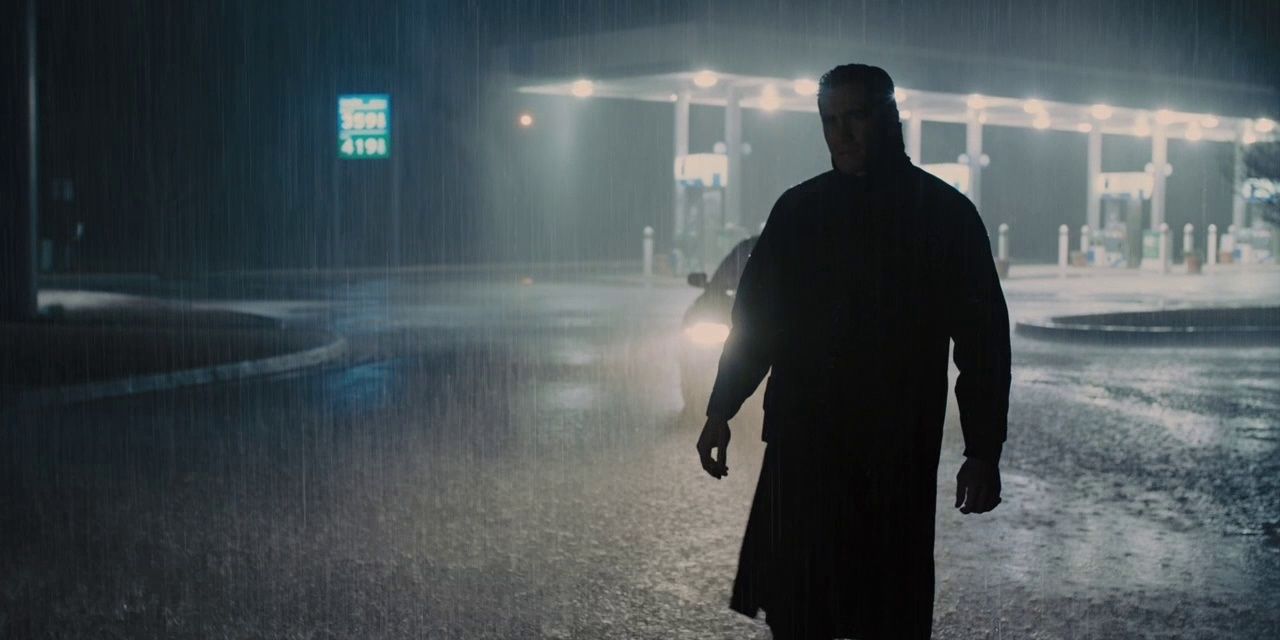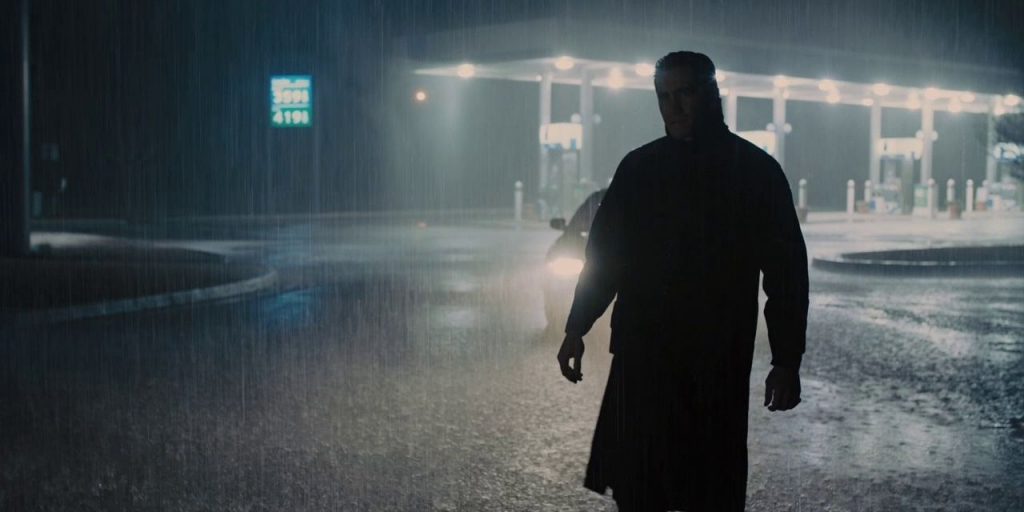
Crime dramas are becoming incredibly popular films and television series. Various streaming services, including Hulu, have a number of them available for bingeing. The countless Law and Order, NCIS, and CSI spin-offs are proof of its sustainability. As uncomfortable as it can be to admit, whether it's real or fictionalized, crime sells.
Jake Gyllenhaal, Hugh Jackman, Viola Davis, Maria Bello, and Terrance Howard star in the 2013 crime drama, Prisoners. As the title suggests, the film deals heavily with the concept of imprisonment. While it's typically thought of first as a physical place, Prisoners proves that prison can be much more terrifying than a location.
RELATED: Steven Soderbergh's Star-Studded Crime Tale 'No Sudden Move' Gets a Stylish Tease
With a Thanksgiving setting, Prisoners zeroes in on what becomes increasingly important around the holidays for many: family. The film opens with two families, the Birches and the Dovers, celebrating the holiday together. Off the bat, these families are obviously close and it's further supported by the similarities between them. Nancy (Davis) and Franklin (Howard) Birch are the parents of two daughters: teen Eliza and young Joy. Like them, Keller (Jackman) and Grace (Bello) Dover have a teen son, Ralph and young girl, Anna.
Everything appears to be as ordinary as every other holiday. This changes when Anna and Joy suddenly disappear without a trace. After an early encounter with a suspicious RV, the families prepare for the worst. Enter Gyllenhaal's Detective Loki. Loki apprehends RV driver Alex Jones early on. After questioning him and finding no evidence to charge him, he's forced to let him go. This understandably upsets Keller, who decides to take things into his own hands.
The multifaceted idea of prison is most notably seen in Keller Dover. As the film goes on, it is evident that Keller isn't perfect, but none of these characters are. Their flaws and moral ambiguity is what helps to make Prisoners such a striking film. These characters feel real and react like any concerned parent might. In doing so, Keller traps himself in more ways than one.
Keller first becomes imprisoned by his own guilt for what has happened to his daughter. During the Thanksgiving celebration, Anna asks Keller if she and Joy can return to the Dover house to look for her beloved red whistle. It's revealed that Keller was the one that gave Anna the item and that it's actually an emergency whistle. Naturally, the whistle becomes a crucial (and somewhat ironic) symbol. When Anna and Joy left the Birch household, they were not accompanied by anyone else. By the time that realization dawns on the teen siblings and their parents, the damage has already been done.
Keller is further shamed by his family. His wife, who begins taking medication to help her sleep amongst other things, grows hysterical and tells him that he promised to protect the family from everything. The implication here is that because their daughter has been taken, he has failed. This comment is what pushes Keller to experience another form of imprisonment.
After Alex is released from police custody, Keller not only attacks him and his aunt outside of the police station, but stalks him. When the opportunity presents itself, Keller abducts Alex and holds him hostage at the old Dover household. Alex utters a number of comments that suggest he is guilty of whatever happened to Anna and Joy and the comments understandably drive Keller mad. Because of Alex's disregard for his feelings, Keller becomes imprisoned by the idea that he's found the guilty party.
Keller eventually brings Franklin into the fold, who is not as receptive to the idea as Keller. When Franklin tries to convince Keller that what he's doing is wrong and that he may have the wrong guy, Keller refuses to believe that he could be wrong about it. Essentially, Keller has trapped himself in a mindset that what he's doing is right and he cannot be talked out of it.
By the end, Keller is a victim of the literal form of prison as well. In addition to being plagued by his earlier feeling of guilt, it doubles. A surprising turn of events leads him to realize what happened to his daughter. By turning his sights there, Keller doesn't see the danger that he may open himself up to. The guilty party understands what Keller is up to and uses his guilt against him. They then use Keller's guilt and willingness to do anything to find out what happened to his daughter to hold him hostage.
Prisoners is complex in its storytelling. The prison metaphor doesn't necessarily smack viewers in the face, but it's subtle enough to still be caught. The film itself keeps the audience guessing. It's hard to know who is right, who is guilty, and what actually happened to Anna and Joy prior to the end. Their kidnapping is the central crime of the film, but it's not the only one that exists. Prisoners is a tangled web of sinister characters that make it hard to know who to trust (and who to blame).
While the central crime is eventually solved by the end, Prisoners does not end definitively. In fact, the ending is far from it. Even though it seems like what follows the final shot is clear, there are a number of possibilities and repercussions that make it somewhat hard to stomach that the film ends where it does. The symbolic red emergency whistle is largely to blame for the ending that has many begging for director Denis Villeneuve for just a few extra minutes of screen time.
Prisoners is now streaming on Hulu.
MORE: The 10 Best TV Dramas Of The 21st Century (So Far), Ranked
